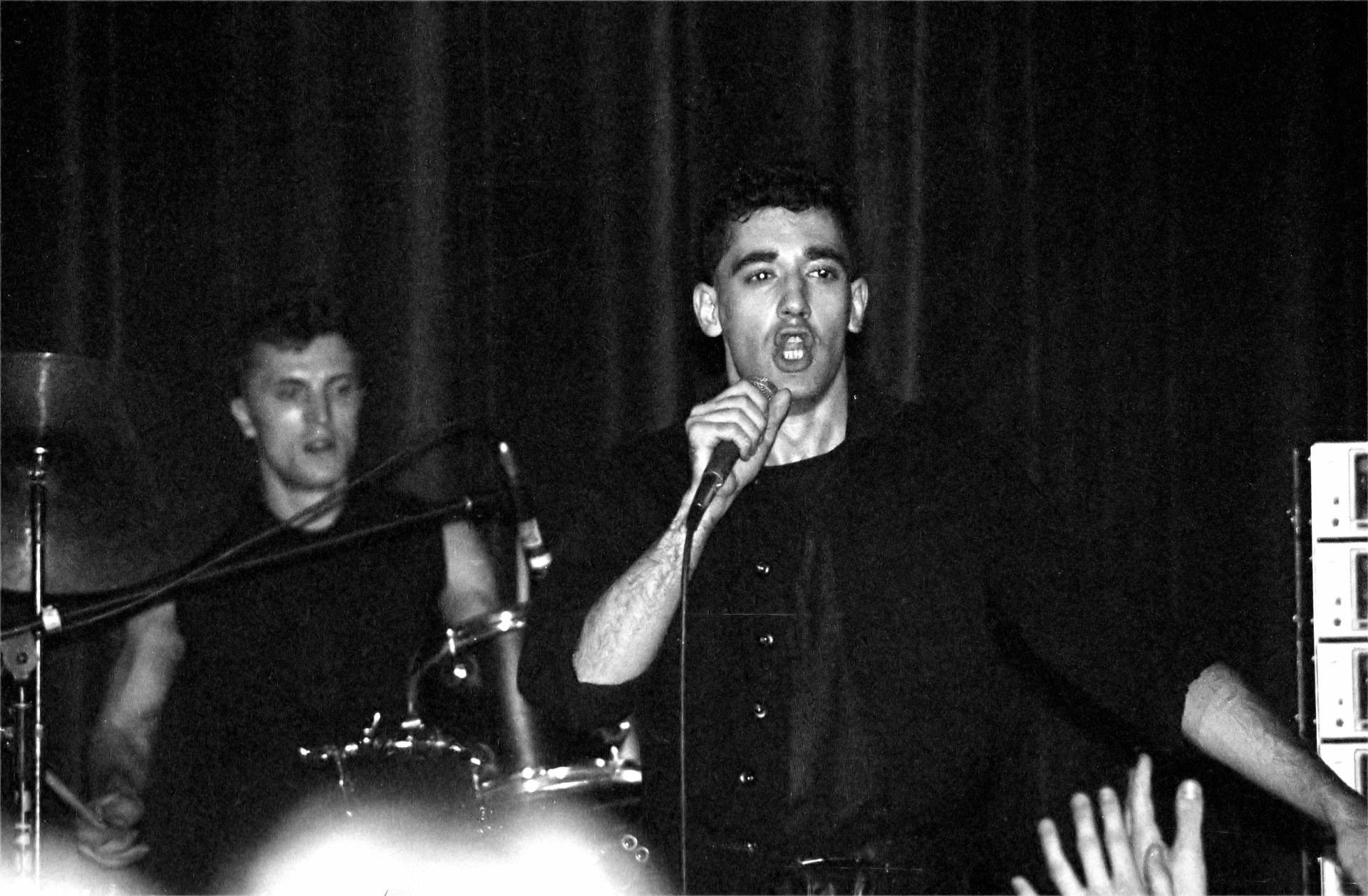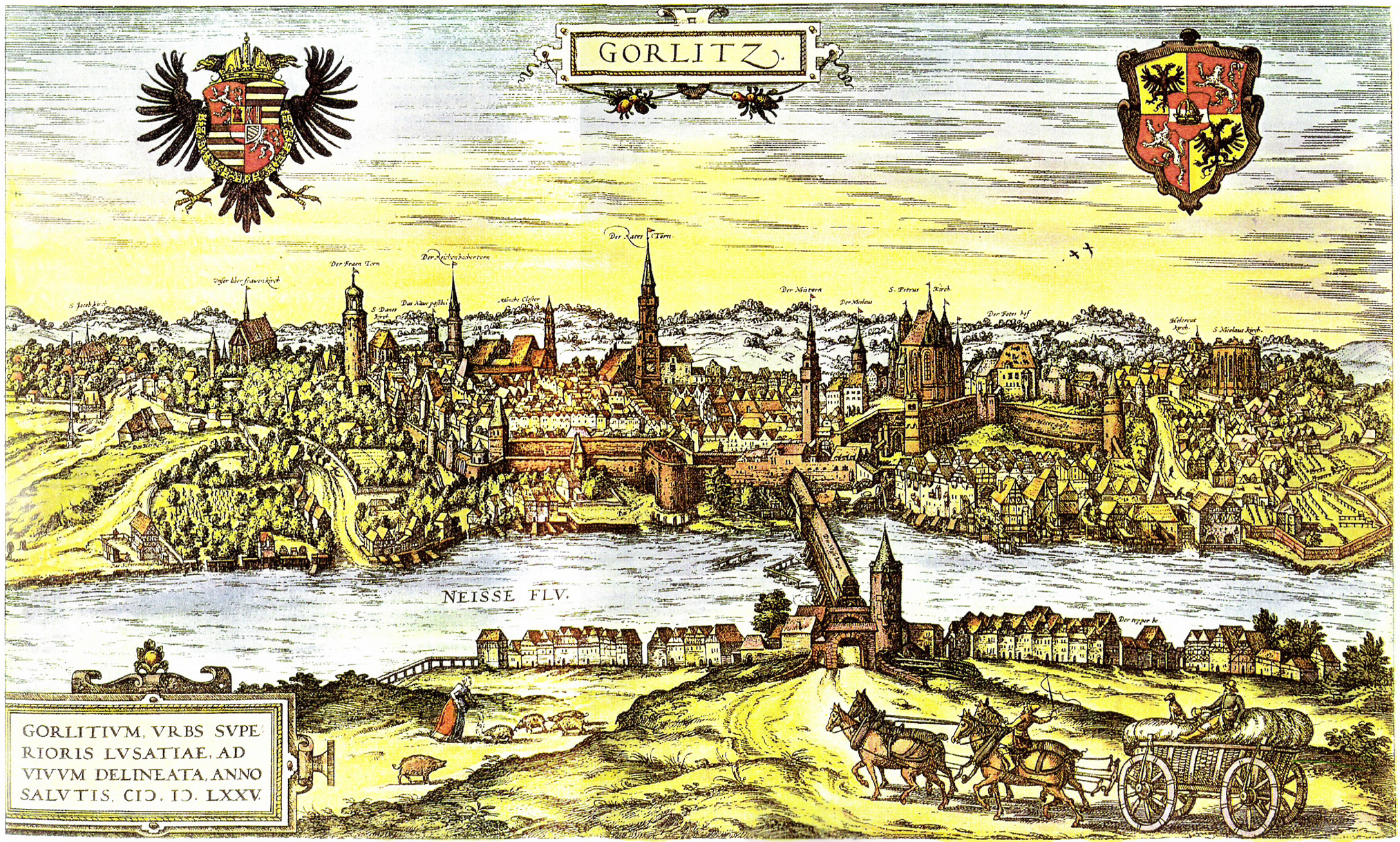|
Absurd Minds
Absurd Minds (sometimes styled ''(ABSUЯD) minds'') is an electronic music group from Germany. It was created by Stefan Großmann and Tilo Ladwig in 1995. History The formation of Absurd Minds began in 1995 with Stefan Großmann (voice, composing) and Tilo Ladwig (composing, programming, sampling). Musically they were inspired by the EBM of the early 1990s. The lyrics are inspired by religion and urge the listener to think for themselves, about themselves, about dreams, deceptions by the media and the forces of nature. In the years 1995-1999, Absurd Minds released 3 CD-R's in limited quantities, laying the foundation for further developments by the band. After a long creative phase their first concert took place at the Dresden club, Bunker. As a result of this, the band came into contact with Music Cooperation who undertook the job as management. A recording contract with the label, Scanner, followed in December, 1999. In the meantime, Absurd Minds played in Electromania II ... [...More Info...] [...Related Items...] OR: [Wikipedia] [Google] [Baidu] |
Electronic Music
Electronic music is a Music genre, genre of music that employs electronic musical instruments, digital instruments, or electronics, circuitry-based music technology in its creation. It includes both music made using electronic and electromechanical means (electroacoustic music). Pure electronic instruments depended entirely on circuitry-based sound generation, for instance using devices such as an electronic oscillator, theremin, or synthesizer. Electromechanical instruments can have mechanical parts such as strings, hammers, and electric elements including pickup (music technology), magnetic pickups, power amplifiers and loudspeakers. Such electromechanical devices include the telharmonium, Hammond organ, electric piano and the electric guitar."The stuff of electronic music is electrically produced or modified sounds. ... two basic definitions will help put some of the historical discussion in its place: purely electronic music versus electroacoustic music" ()Electroacoustic m ... [...More Info...] [...Related Items...] OR: [Wikipedia] [Google] [Baidu] |
Germany
Germany, officially the Federal Republic of Germany (FRG),, is a country in Central Europe. It is the most populous member state of the European Union. Germany lies between the Baltic and North Sea to the north and the Alps to the south. Its 16 constituent states have a total population of over 84 million in an area of . It borders Denmark to the north, Poland and Czechia to the east, Austria and Switzerland to the south, and France, Luxembourg, Belgium, and the Netherlands to the west. The nation's capital and most populous city is Berlin and its main financial centre is Frankfurt; the largest urban area is the Ruhr. Settlement in what is now Germany began in the Lower Paleolithic, with various tribes inhabiting it from the Neolithic onward, chiefly the Celts. Various Germanic tribes have inhabited the northern parts of modern Germany since classical antiquity. A region named Germania was documented before AD 100. In 962, the Kingdom of Germany formed the ... [...More Info...] [...Related Items...] OR: [Wikipedia] [Google] [Baidu] |
Tilo Ladwig
{{disambiguation, plant ...
Tilo, TiLo, or TILO, may refer to: * a local name for the herb '' Justicia pectoralis'' * a local name for the tree ''Ocotea foetens'' * a German male name * since 1969 * TiLo (rapper), a former member of Methods of Mayhem * the Technology for Improved Learning Outcomes (TILO) educational program in Egypt * the Treni Regionali Ticino Lombardia (TiLo) regional railway operator in southern Switzerland and northern Italy See also * Til (other) * Tilia ''Tilia'' is a genus of about 30 species of trees or bushes, native throughout most of the temperate Northern Hemisphere. The tree is known as linden for the European species, and basswood for North American species. In Britain and Ireland they ... [...More Info...] [...Related Items...] OR: [Wikipedia] [Google] [Baidu] |
Electronic Body Music
Electronic body music (acronymized to EBM) is a genre of electronic music that combines elements of industrial music and synth-punk with elements of disco and dance music. It developed in the early 1980s in Western Europe as an outgrowth of both punk and industrial music cultures. It combines sequenced repetitive basslines, programmed dance music rhythms, and mostly undistorted vocals and commandlike shouts with confrontational or provocative themes. The evolution of the genre reflected "a general shift towards more song-oriented structures in industrial as to a general turn towards the dancefloor by many musicians and genres in the era of post-punk."Timor Kaul: ''Electronic Body Music''. In: Thomas Hecken, Marcus S. Kleiner: ''Handbook Popculture.'' J.B. Metzler Verlag 2017, , p. 102–104. It was considered a part of the European new wave and post-punk movement and the first style that blended synthesized sounds with an ecstatic style of dancing (e.g. pogo). EBM gai ... [...More Info...] [...Related Items...] OR: [Wikipedia] [Google] [Baidu] |
Dresden
Dresden (, ; Upper Saxon: ''Dräsdn''; wen, label=Upper Sorbian, Drježdźany) is the capital city of the German state of Saxony and its second most populous city, after Leipzig. It is the 12th most populous city of Germany, the fourth largest by area (after Berlin, Hamburg and Cologne), and the third most populous city in the area of former East Germany, after Berlin and Leipzig. Dresden's urban area comprises the towns of Freital, Pirna, Radebeul, Meissen, Coswig, Radeberg and Heidenau and has around 790,000 inhabitants. The Dresden metropolitan area has approximately 1.34 million inhabitants. Dresden is the second largest city on the River Elbe after Hamburg. Most of the city's population lives in the Elbe Valley, but a large, albeit very sparsely populated area of the city east of the Elbe lies in the West Lusatian Hill Country and Uplands (the westernmost part of the Sudetes) and thus in Lusatia. Many boroughs west of the Elbe lie in the foreland of th ... [...More Info...] [...Related Items...] OR: [Wikipedia] [Google] [Baidu] |
Bunker (club)
A bunker is a defensive military fortification designed to protect people and valued materials from falling bombs, artillery, or other attacks. Bunkers are almost always underground, in contrast to blockhouses which are mostly above ground. They were used extensively in World War I, World War II, and the Cold War for weapons facilities, command and control centers, and storage facilities. Bunkers can also be used as protection from tornadoes. Trench bunkers are small concrete structures, partly dug into the ground. Many artillery installations, especially for coastal artillery, have historically been protected by extensive bunker systems. Typical industrial bunkers include mining sites, food storage areas, dumps for materials, data storage, and sometimes living quarters. When a house is purpose-built with a bunker, the normal location is a reinforced below-ground bathroom with fiber-reinforced plastic shells. Bunkers deflect the blast wave from nearby explosions to prevent ea ... [...More Info...] [...Related Items...] OR: [Wikipedia] [Google] [Baidu] |
Music Cooperation
Music is generally defined as the art of arranging sound to create some combination of form, harmony, melody, rhythm or otherwise expressive content. Exact definitions of music vary considerably around the world, though it is an aspect of all human societies, a cultural universal. While scholars agree that music is defined by a few specific elements, there is no consensus on their precise definitions. The creation of music is commonly divided into musical composition, musical improvisation, and musical performance, though the topic itself extends into academic disciplines, criticism, philosophy, and psychology. Music may be performed or improvised using a vast range of instruments, including the human voice. In some musical contexts, a performance or composition may be to some extent improvised. For instance, in Hindustani classical music, the performer plays spontaneously while following a partially defined structure and using characteristic motifs. In modal jazz th ... [...More Info...] [...Related Items...] OR: [Wikipedia] [Google] [Baidu] |
Leipzig
Leipzig ( , ; Upper Saxon: ) is the most populous city in the German state of Saxony. Leipzig's population of 605,407 inhabitants (1.1 million in the larger urban zone) as of 2021 places the city as Germany's eighth most populous, as well as the second most populous city in the area of the former East Germany after ( East) Berlin. Together with Halle (Saale), the city forms the polycentric Leipzig-Halle Conurbation. Between the two cities (in Schkeuditz) lies Leipzig/Halle Airport. Leipzig is located about southwest of Berlin, in the southernmost part of the North German Plain (known as Leipzig Bay), at the confluence of the White Elster River (progression: ) and two of its tributaries: the Pleiße and the Parthe. The name of the city and those of many of its boroughs are of Slavic origin. Leipzig has been a trade city since at least the time of the Holy Roman Empire. The city sits at the intersection of the Via Regia and the Via Imperii, two important medie ... [...More Info...] [...Related Items...] OR: [Wikipedia] [Google] [Baidu] |
Nostromo Festival
''Nostromo: A Tale of the Seaboard'' is a 1904 novel by Joseph Conrad, set in the fictitious South American republic of "Costaguana". It was originally published serially in monthly instalments of ''T.P.'s Weekly''. In 1998, the Modern Library ranked ''Nostromo'' 47th on its list of the 100 best English-language novels of the 20th century. It is frequently regarded as amongst the best of Conrad's long fiction; F. Scott Fitzgerald once said, "I'd rather have written ''Nostromo'' than any other novel." Background Conrad set his novel in the town of Sulaco, a port in the western region of the imaginary country Costaguana. In his "Author's Note" to later editions of ''Nostromo'', Joseph Conrad provides a detailed explanation of the inspirational origins of his novel. There he relates how, as a young man of about seventeen, while serving aboard a ship in the Gulf of Mexico, he heard the story of a man who had stolen, single-handedly, "a whole lighter-full of silver". As Conrad go ... [...More Info...] [...Related Items...] OR: [Wikipedia] [Google] [Baidu] |
Görlitz
Görlitz (; pl, Zgorzelec, hsb, Zhorjelc, cz, Zhořelec, East Lusatian dialect: ''Gerlz'', ''Gerltz'', ''Gerltsch'') is a town in the German state of Saxony. It is located on the Lusatian Neisse River, and is the largest town in Upper Lusatia as well as the second-largest town in the region of Lusatia, after Cottbus. Görlitz is the easternmost town in Germany (easternmost village is Zentendorf (Šćeńc)), and lies opposite the Polish town of Zgorzelec, which was the eastern part of Görlitz until 1945. The town has approximately 56,000 inhabitants, which make Görlitz the sixth-largest town in Saxony. It is the seat of the district of Görlitz. Together with Zgorzelec, it forms the Euro City of Görlitz/Zgorzelec, which has a combined population of around 86,000. While not Lusatiophone itself, the town is situated just east of the Sorbian-speaking parts of Lusatia. The town's recorded history began in the 11th century as a Sorbian settlement. Through its histor ... [...More Info...] [...Related Items...] OR: [Wikipedia] [Google] [Baidu] |






